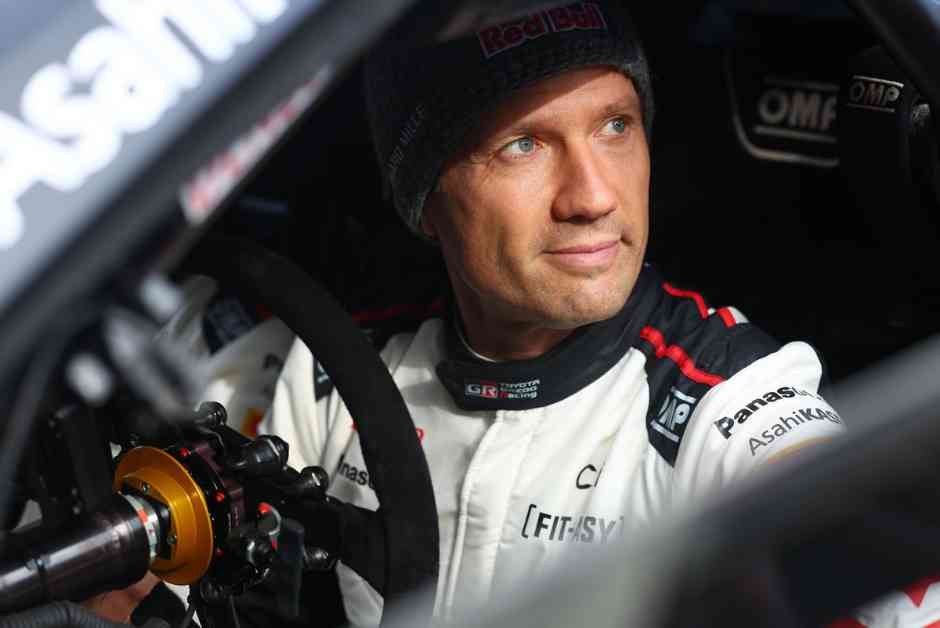Sébastien Ogier, the eight-time world rally champion, has recently found himself at the center of controversy following a €30,000 suspended fine from the FIA for comments he made towards officials at the Acropolis Rally Greece. This incident has prompted Ogier to adopt a more reserved approach in his post-stage interviews during the Rally Chile, citing instructions from the FIA to “shut our mouths”. Ogier’s reluctance to engage with reporters has raised concerns about censorship and control over drivers’ freedom of expression.
Ogier’s decision to limit his interactions with the media has been supported by fellow driver Ott Tanak, the 2019 world champion from Hyundai. Tanak expressed his uncertainty about how to navigate the FIA’s recent crackdown on driver comments in the World Rally Championship (WRC) and the use of swear words in Formula 1 press conferences. The actions taken by the FIA have sparked a sense of unease among drivers, leading to a collective protest against perceived restrictions on their ability to communicate openly.
The controversy surrounding Ogier and Tanak’s response to the FIA’s actions is further exacerbated by Max Verstappen’s recent protest at the Singapore Grand Prix. Verstappen received a community service punishment for swearing in an FIA press conference, prompting him to deliver short answers before hosting his own media debrief session. These incidents highlight a growing tension between drivers and regulatory bodies, as issues of freedom of speech and expression come to the forefront in the world of motorsport.
In a statement during the midday service at Rally Chile, Ogier expressed regret for his limited engagement with the media, acknowledging the disappointment it may have caused to fans. He emphasized that his actions were not personal but driven by the directives issued by the FIA. Ogier’s reluctance to speak at length reflects a broader concern among drivers about the constraints imposed on their ability to communicate openly with the public and the media.
Despite his reservations about speaking out, Ogier started Rally Chile strongly, taking an early lead in the competition. However, a puncture on stage three due to clipping a bank caused him to drop to 15th position, presenting a significant challenge for the remainder of the event. Ogier remains determined to persevere and fight for a better position in the upcoming stages, despite the setbacks he has faced.
As the debate over driver communication and freedom of expression continues to unfold, it is evident that tensions between drivers and regulatory bodies are reaching a critical point. The actions taken by the FIA in response to controversial incidents involving drivers like Ogier, Tanak, and Verstappen have raised questions about the balance between enforcing discipline and respecting drivers’ rights to express themselves. The outcome of this ongoing conflict may have significant implications for the future of motorsport and the relationship between drivers, teams, and governing bodies.
Overall, the protests and reactions from drivers like Sébastien Ogier, Ott Tanak, and Max Verstappen reflect a broader struggle for autonomy and agency in the highly regulated world of professional racing. The clash between drivers’ desire for freedom of expression and the FIA’s efforts to maintain discipline and decorum highlights the complex dynamics at play in the sport. As the situation evolves, it remains to be seen how drivers, teams, and governing bodies will navigate these challenges and find a resolution that upholds the integrity and spirit of motorsport while respecting the rights and voices of those who participate in it.








